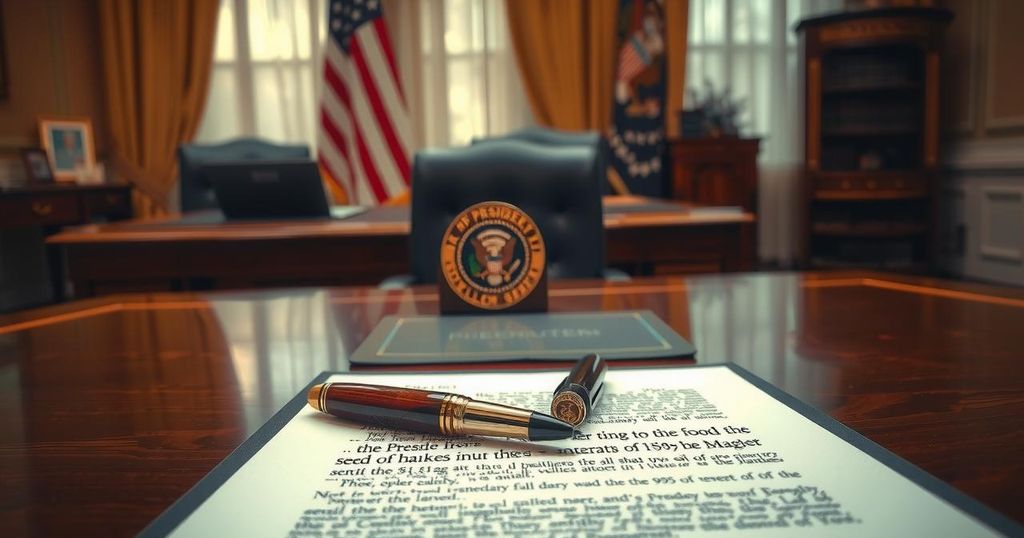Ecuador Presidential Election: Noboa and Gonzalez to Face Runoff
Ecuador’s President Daniel Noboa has narrowly claimed victory with 44.3% of the vote against leftist rival Luisa Gonzalez’s 43.9%, leading to a runoff election. The results reflect a desire for change, as Gonzalez aims to become Ecuador’s first female president. The election highlights ongoing violence and economic challenges in Ecuador.
Ecuador’s president, Daniel Noboa, has claimed victory in the first round of voting, despite facing a close challenge from leftist rival Luisa Gonzalez. With 93 percent of the votes counted, Noboa secured 44.3 percent of the vote against Gonzalez’s 43.9 percent, prompting a runoff election in April. Noboa highlighted his win over traditional parties, attributing it to his anti-drug cartel campaign amid rising violence in Ecuador.
Gonzalez, a lawyer and single mother, articulated that the outcome reflects a desire for change among the populace. She described the contest as a David-versus-Goliath scenario, underscoring her commitment to human rights in the nation’s ongoing fight against organized crime. In the background, Indigenous leader Leonidas Iza trailed with a mere 5.3 percent of the vote.
Seeking to make history as Ecuador’s first elected female president, Gonzalez received a significant endorsement from Mexico’s leftist president Claudia Sheinbaum, who expressed hope for improved diplomatic relations with Ecuador. This election represents a rematch between Noboa and Gonzalez, highlighting ongoing questions about Noboa’s stringent law enforcement measures amidst increasing crime rates and economic difficulties.
Noboa’s administration has launched a state of emergency, deployed military forces to address cartel violence, and acquired expansive executive powers. Nonetheless, human rights organizations have raised alarms over potential abuses linked to military operations, notably citing the tragic murder of four boys near an army facility. Both candidates campaigned under heightened security due to past violence during elections, but the recent vote occurred without incident.
Concerns regarding Gonzalez’s governance emerged, with Noboa suggesting that her victory would revert the country to the policies of Rafael Correa, an exiled socialist former president. Correa himself expressed confidence in Gonzalez’s prospects through social media. Additionally, Noboa pointed to a successful performance in legislative elections to signal his sustained support.
The ongoing violence in Ecuador has adversely affected tourism and investment, contributing to economic instability. Noboa is now reliant on the International Monetary Fund for assistance in addressing fiscal challenges, while Gonzalez expressed a cautious willingness to work with the IMF provided its policies do not adversely impact low-income families. Moreover, the anticipated return of thousands of migrants from the United States adds another layer of complexity to Ecuador’s situation, which traditionally relies on significant remittances from abroad.
Gonzalez has indicated a desire for constructive relations with the U.S., even as her campaign progresses against Noboa’s established tough stance on security issues.
In summary, Ecuador’s presidential election is poised for a runoff as incumbent Daniel Noboa and leftist contender Luisa Gonzalez face off following a tightly contested first round. Noboa claims a narrow lead, yet Gonzalez positions her campaign as a fight for transformative change amid rising violence and economic decline. The upcoming election will undoubtedly shape Ecuador’s political landscape as both candidates seek to address pressing national issues.
Original Source: www.bryantimes.com




Post Comment